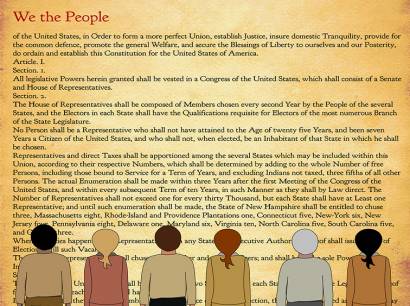This Week's Story
Gigantic political fires burned in the United States in 1787. They burn now!

This Week’s Story relives American history and the Bible through brief inspiring stories presented on mp3 audio recordings and text for reading.
Firestorm
Gigantic political fires burned in the United States in 1787 and they’re burning now. Will they destroy the country? People ask, “What’s the matter with our government? Policymakers are trapped in fiery arguments about taxes, debt, basic freedoms, drug trafficking, immigration, healthcare, and the military. Americans ask, “What should we do?” Others ask, “Where is the fire department?”
George Washington wrote about the new United States, “We are fast verging to anarchy and confusion.” The Revolutionary War was over. Americans had won their freedom from England, but their government was not working. Instead of having a constitution as the United States now has, it had what was called a “league of friendship” or the Articles of Confederation. The truth was there was no league of friends. Each state focused on its rights and the federal government had little authority. It could not tax Americans. It could not regulate commerce or support a military. States were going broke; the federal government could not pay its bills; small farmers and businesses were struggling. Some farmers were in jail, because they could not pay their bills. Farms were being sold to pay debts. Paper money was becoming worthless.
In desperation Congress called delegates to come from all the states to revise the Articles of Confederation. It was quickly obvious that a constitution needed to be written. Thus began the Constitutional Convention.
For nearly four hot summer months in 1787, delegates dripped with sweat, argued, stone-walled, and nearly gave up on writing and agreeing upon a constitution. Many of these men had dedicated their lives to helping the nation win its freedom.
James Madison, who is known as the Father of the Constitution, wanted a strong federal government. With others from his state of Virginia, he proposed three branches of federal government, each able to check the other’s power, but the states were given little power. Many state delegations declared, “No!”
Arguments became unending. Big questions were: How could little states have a voice, and not be trampled by big states? Could big and little states each have two senators? Could a house of representatives be based on population? Would slaves be counted? If they were, then the southern states would have more power than the northern states.
Benjamin Franklin, at age 81, was the oldest delegate. His experience and commonsense helped men argue with more reason and less nastiness. One day when delegates could find no way to agree and failure seemed certain, Benjamin gave a brief speech. It included these words: “We have gone back to ancient history for models of Government…which…no longer exist. And we have viewed Modern States all round Europe, but find none of their Constitutions suitable to our circumstances.”
“…how has it happened…that we have not… thought of humbly applying to the Father of lights to illuminate our understandings? …do we imagine that we no longer need his assistance?”
Debates continued, but agreements were reached. The final vote of agreement on the Constitution came September 15, 1787. Every state delegation voted, “Aye.” This constitution is the oldest written one still in effect in the world. When it is followed, it provides for fair government.
This is Barbara Steiner wondering: How can the fires of disagreement be helpful?
Please check out thisweeksstory.com.
<< previous story] [next story >>
We invite your comments! [click here to comment]
This Week's Story is a non-profit supported by listeners. [click here to make a donation]
 click here to play audio
click here to play audio